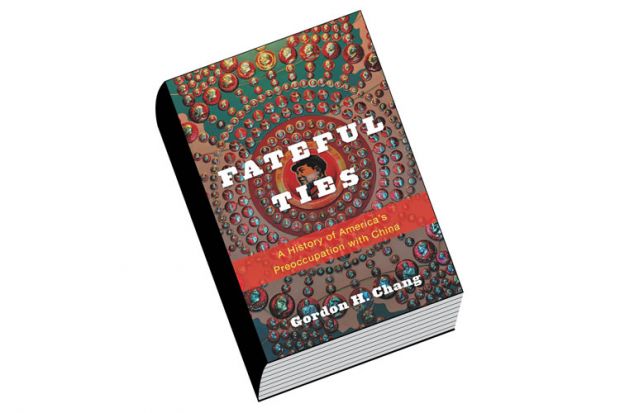The words “America’s preoccupation” in the subtitle neatly sum up the focus of historian Gordon Chang’s book: it concerns not engagement but attitudes, not policies and actions but the sense of fascination that joins them.
Chang’s interest lies in the preconceptions and fond assumptions about China that would lead, at times, to far-reaching policies and actions by the US. He argues that through the centuries, on the US side, the concept of “destiny” was the common thread. At times this appeal to destiny pertained to America’s vision for itself, especially in its expansion westward; at others, it was expressed in a sense of fatedness in the two countries’ conjunction. He traces this idea in the language used throughout the entire history of contact between the nations, from the first imaginary link when Columbus believed that he had reached the East, to today’s connections with a startlingly new China, where Chang finds similar language used by Xi Jinping, China’s president.
As is appropriate for a work aimed at the general reader, Fateful Ties also provides a history of US and Chinese interactions. This coverage, carried out in a necessarily rapid and intercutting manner, may well arouse specialists’ demurrals at any given segment. Major points in this chronicle include, in the 19th century, Chinese immigrants drawn to the US by the Gold Rush, their work on the transcontinental railway and the discrimination they experienced; the US missionaries to China whose influence on popular views went far beyond their numbers; diplomacy, war and commerce in the context of the Great Powers; and in the 20th century, diplomacy and commerce again, this time in the context of Sun Yat-sen and Chiang Kai-shek and, later, Mao Zedong. Richard Nixon’s historic 1972 visit to China – which would be repeated by five of the next six sitting US presidents – signals the present era.
Intriguing vignettes abound. In 1841, the statesman (and former president) John Quincy Adams, fresh from defending the seizure of the boat Amistad by slaves, gave an hours-long, closely reasoned speech on the Anglo China war (that is, the first Opium War, 1839-42) and concluded in favour of Britain. Anson Burlingame, for whom the Burlingame Treaty of 1868 was named, was the US’ envoy to China and, on his return trip, China’s envoy to the US. The familiar figures of Pearl Buck and Edgar Snow are profiled and their influence analysed, along with the first of the modern China scholars, John Fairbank. Chang’s interest is wide-ranging, from humorist Will Rogers to film star Shirley MacLaine, who in 1973 was one of the first Americans invited to the People’s Republic of China after Nixon, and who gets almost as many pages here as Burlingame. Refreshingly, Chang also quotes poems by Bret Harte, Oliver Wendell Holmes Sr, Langston Hughes and several early Chinese envoys to the US as well as the libretto to Nixon in China.
Near the beginning of this study, Chang observes that “although few Americans were ever well informed about China, that did not stop them from having strong opinions and feelings about the country and its people”. At its end, he traces his book’s genesis to discussions he had in the early years of China’s (now very evident) rise to importance on the world stage, when without desiring to predict the future, he aimed to offer a historical perspective. Reading his two comments together might make this study a kind of admonition to the present.
Eva Shan Chou is professor in the department of English, Baruch College, City University of New York, and author of Memory, Violence, Queues: Lu Xun Interprets China (2012).
Fateful Ties: A History of America’s Preoccupation with China
By Gordon H. Chang
Harvard University Press, 336pp, £24.95
ISBN 9780674050396
Published 30 April 2015
Register to continue
Why register?
- Registration is free and only takes a moment
- Once registered, you can read 3 articles a month
- Sign up for our newsletter
Subscribe
Or subscribe for unlimited access to:
- Unlimited access to news, views, insights & reviews
- Digital editions
- Digital access to THE’s university and college rankings analysis
Already registered or a current subscriber? Login
